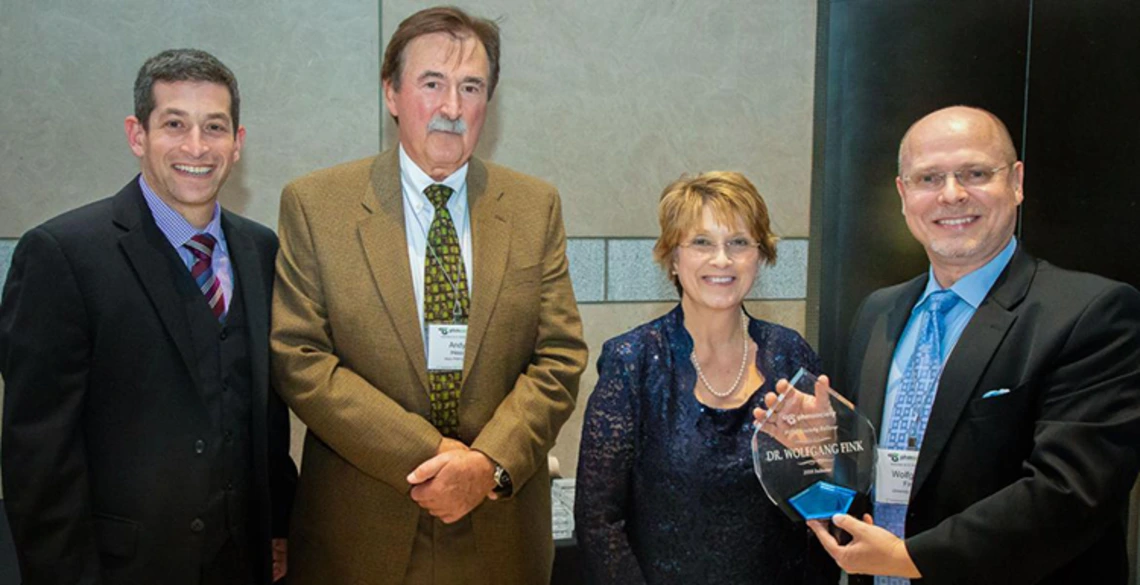UA Researcher Explores Key to Healthy Humans, Safe Spacecraft and Prospering Plants

Wolfgang Fink, associate professor of electrical and computer engineering with a joint appointment in aerospace and mechanical engineering, has always had a knack for seeing how the pieces of a puzzle fit together. Today, that means that Fink -- who also has joint positions in biomedical engineering, ophthalmology and vision science, and systems and industrial engineering -- can continue finding connections across disciplines to solve a world of problems.
His current work is focused on predictive health management, a field with an origin in aerospace engineering but with wide-ranging applications, such as human health. Fink’s research is starting in space, where it’s both crucial and complicated, because specially trained astronauts -- who are difficult to replace -- need to stay healthy and don’t have access to a doctor.
If engineers can perfect these predictive methods in space, then using them to monitor human health on Earth should be easy. Fink, as one of the founding members of the Mars Agricultural Research Consortium, is also a part of developing techniques to grow plants in Martian greenhouses, using the same predictive measures to plot the health of the crops on Earth that sustain human life.
